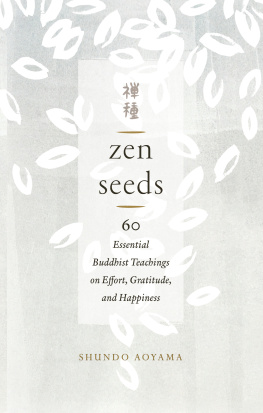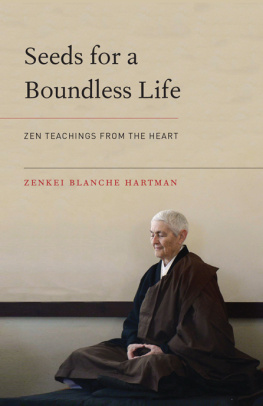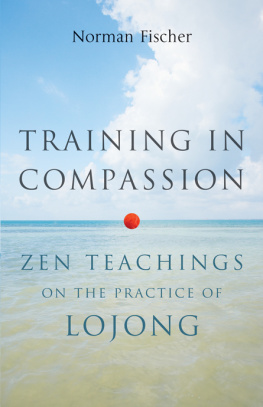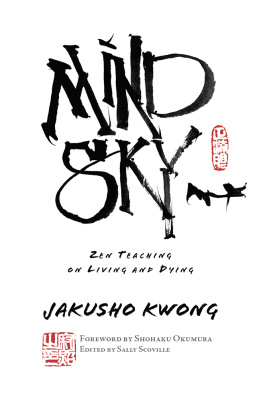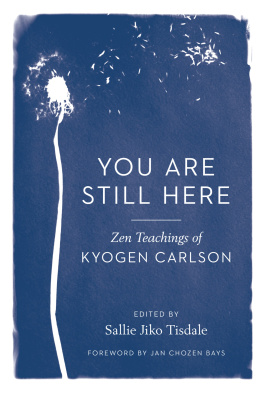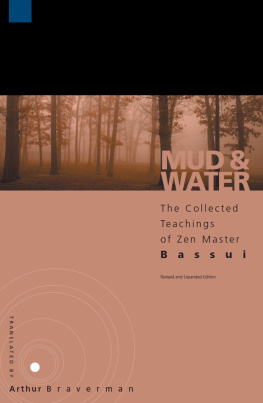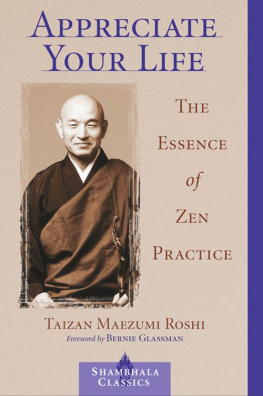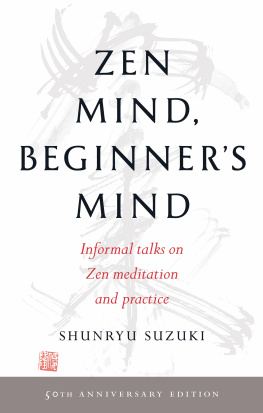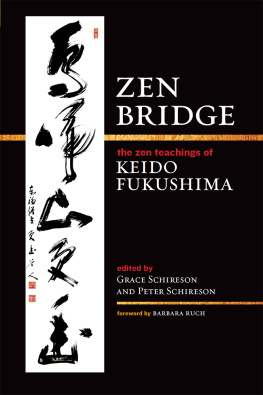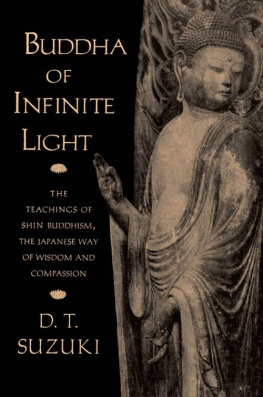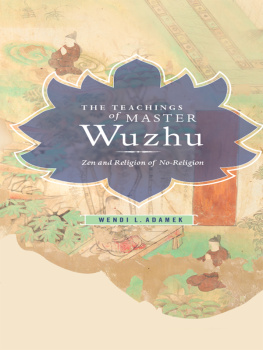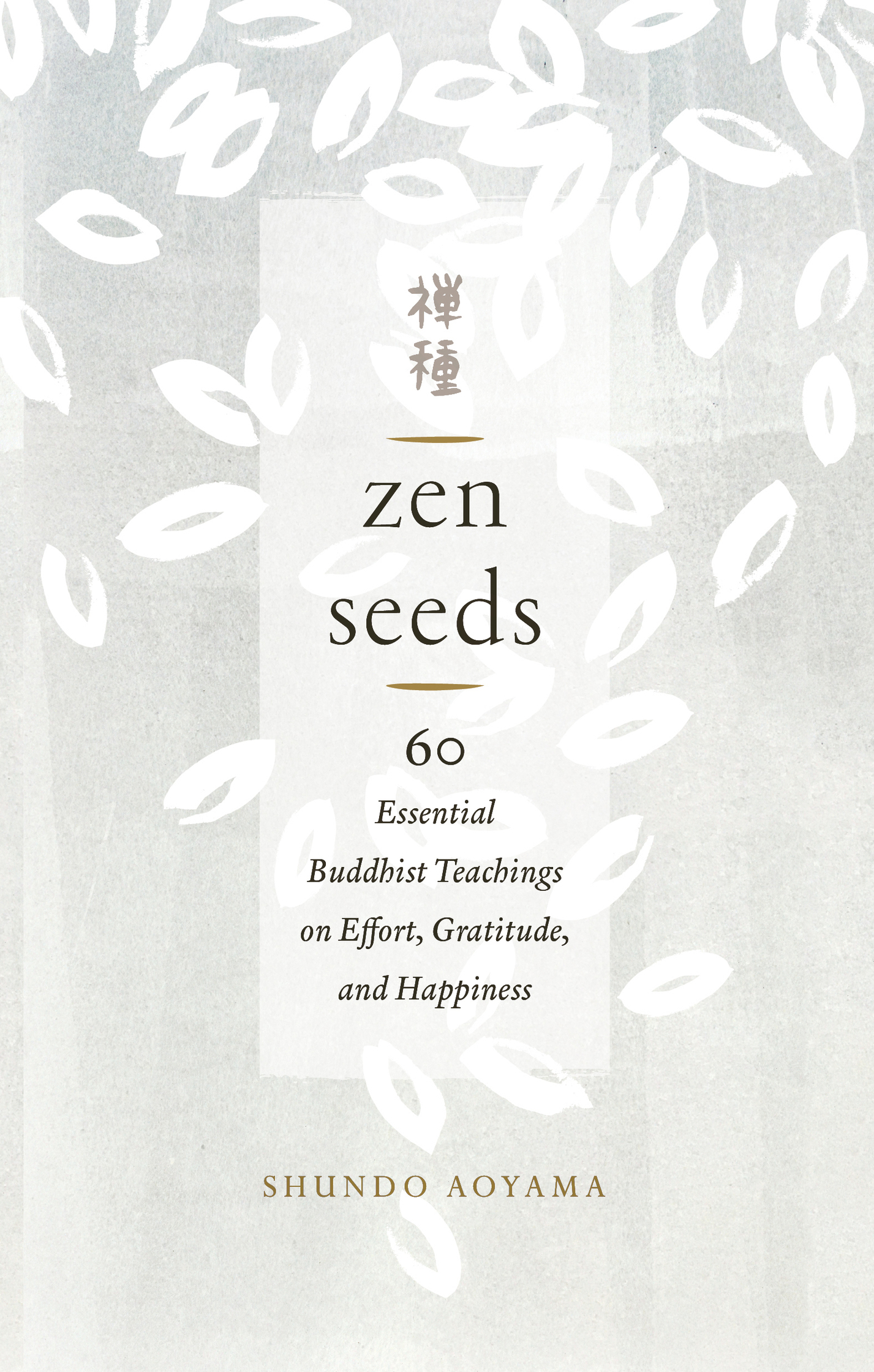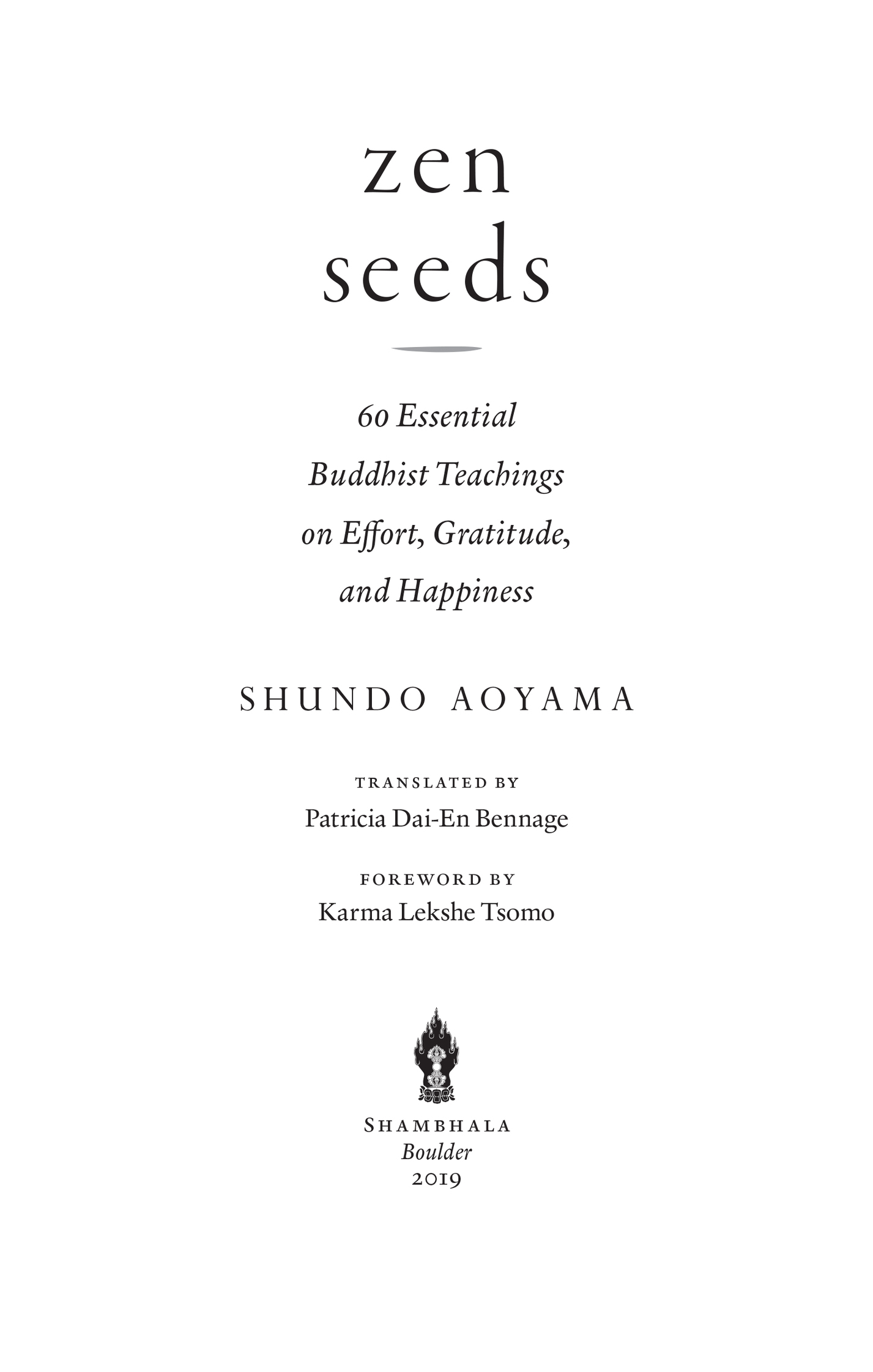In this book the names of all pre-modern Japanese are given in the Japanese style, with the surname first, and those of all modern (post-1868) Japanese are given in the Western style, with the surname last.
FOREWORD BY
KARMA LEKSHE TSOMO
The book you hold in your hands is a treasure. In her reflections in Zen Seeds, Shundo Aoyama Roshi shares an intimate portrait of her early life as an acolyte in a Zen temple, affording a rare glimpse of the world of mid-twentieth-century Japanese Zen as seen from the perspective of a nun.
Her mother considered her a gift from the Buddha and, even before she was born, arranged for her to live a monastic life. As a young girl of five, she entered Mury Temple in the mountainous region of Nagano. As she entered the temple, her aged aunt, a nun named Shuzan, took her before a smiling image of Amida Buddha and told her that he would always watch over her. Thus, the young girl never felt lonely but imagined herself embraced by Amida Buddhas warm hands. He became her guide.
As a child, Aoyama Roshis religious education encompassed intensive training in meditation, tea ceremony, flower arrangement, and calligraphy. To master these Japanese arts is a Dharma practice in itself. Her traditional education required strict discipline and the memorization of numerous sutras. During high school, she had to study for her exams on the sly, giving priority to monastic duties. At the age of fifteen, she fulfilled her dream of being ordained as a nun in the Soto Zen School, and soon thereafter she began her university education. Eventually, with grace and humility, she began leading Zen retreats. After many years of training under the care of Senshu, her warm but exacting teacher, she emerged as a renowned Zen master in the patriarchal world of Japanese Buddhism.
One of the most remarkable features of the contemporary resurgence of Buddhism throughout the world is the prominence of recognized and respected women teachers such as Aoyama Roshi.
When, in 1964, I first began practicing Zen in Japan, no one mentioned Zen monasteries for women. I could not find even one. At that time, Zen monasteries were almost exclusively the domains of monks, and spaces for womens practice were few.
When I returned to Japan in 1971, a scattering of Zen monasteries had opened their doors to women. Kubori Sensei at Daitokuji in Kyoto was progressive in welcoming Western practitioners, including women. When I attended a five-day Soto Zen retreat (sesshin) with Kosho Uchiyama Sensei that winter at Antai-ji Temple, a number of resolute Japanese laywomen in the sitting hall (zendo) were sitting formally on their knees (seiza) with quiet determination. The discipline at this sesshin was so strict that a few of us foreigners escaped to join the New Years Eve celebrations happening downtown. The Japanese women persisted steadily for the entire five days.
In 1982, I again returned to Japan, this time in search of Buddhist nuns. I discovered a few, but most were already in their eighties and nineties. However, opportunities for women to practice Zen were quietly openinga gentle revolution was underway.
In 2008, Aoyama Roshi delivered a keynote address at the Sakyadhita International Conference on Buddhist Women in Ulaanbaatar, Mongolia. She was an impressive figure, and her magnetic presence alerted the Buddhist world that Japanese nuns were beginning to take their place in the international community. In 2010, when I visited her Zen training center for womenAichi Semmon Nisodo, in NagoyaI found a dynamic community of delightful, dedicated practitioners from many countries and cultures. As Roshi puts it, A brocade cannot be woven in one color. Like a richly woven tapestry, the Dharma appears in great diversity to benefit myriad beings.
To the Western reader, Aoyama Roshis experience may seem quite exotic and way too strict at times, but she has followed the Buddhas way from a young age, whereas most modern readers discover Buddhist wisdom as adults. She was thoroughly immersed in the aesthetics and values of traditional Japanese culture, whereas readers today grow up in a very different world. With strict discipline, she developed a level of self-mastery most of us can only imagine. Despite disillusionments and frustration at the pace of her progress on the path, she maintained her resolve throughout. She is a great example of the realizations we can attain by stepping out of our self-contained worlds and putting our judgmental minds on hold for a while.
In Aoyama Roshis metaphor, the Buddhas teachings flow like a valley stream. Fortunate sentient beings are able to hear these teachings according to their unique affinities and pass them along in continually shifting cadences. The teachings are especially appropriate for people today, as they hurry about attending to the many demands of contemporary life. In time, those with good fortune begin to pick up the rhythm of the stream. As Roshi notes, When people rush around busily, complaining and making excuses, they prove their lack of wisdom. Harsh as that may sound, when we begin to wake up and tune in, we appreciate the insight of her words.
Aoyama Roshi is inspired by the wonder of life in every detail and imparts that inspiration to others. She embraces whatever illuminates the true nature of our ordinary self. She delights in the selfless love of mothers who devote themselves to the well-being of their children; she shows us the joy in savoring a simple meal. Her endearing honesty and sincere humility reveal the beauty of the teachings in the everyday phenomenal world. She testifies that the adversities of life are blessings from the Buddha. Insight emerges from bringing awakened awareness to all the vicissitudes of life.

